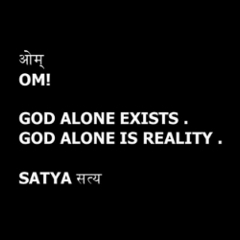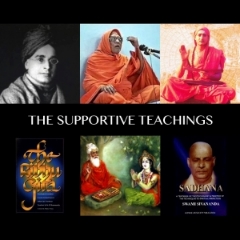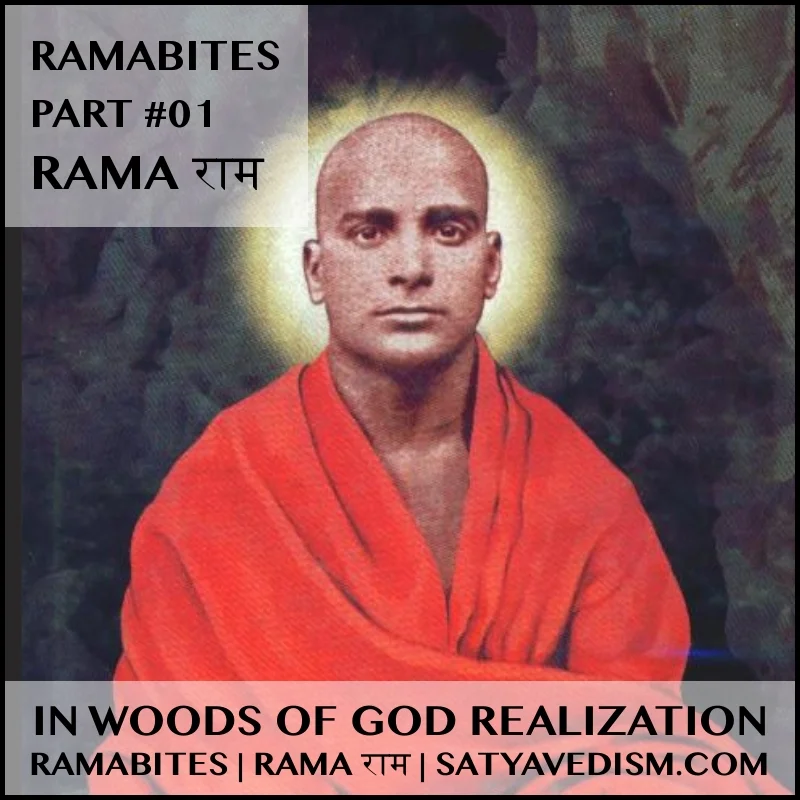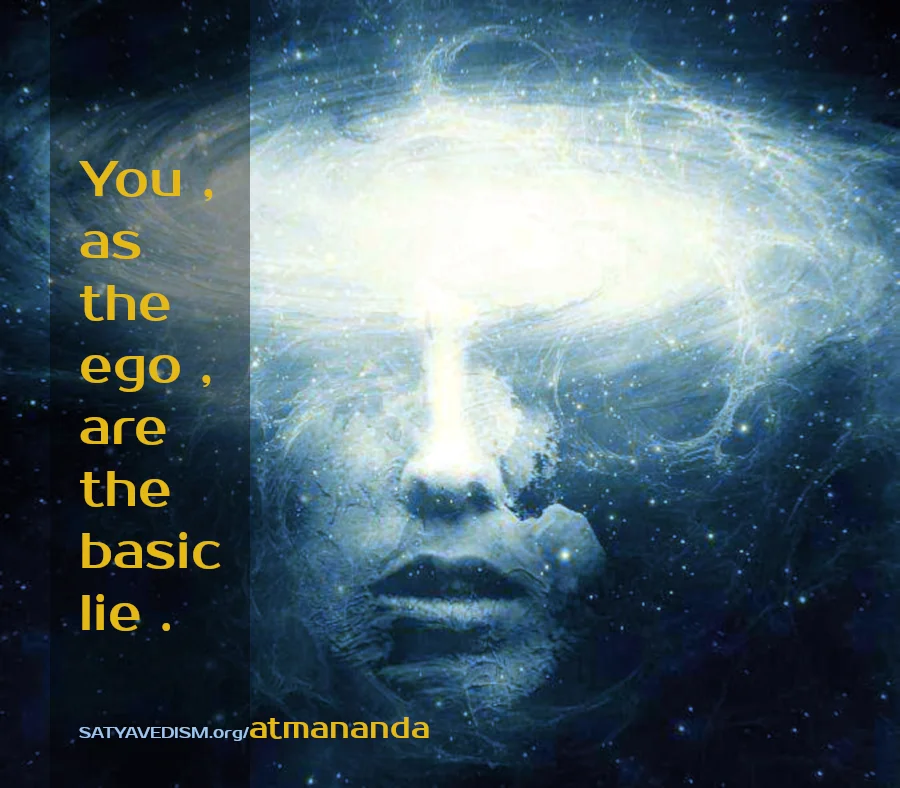TAITTIRIYA UPANISAD | 2.1.1 | PT 1 | AMOETD
| | homeTAITTIRIYA UPANISAD | 2.1.1 | SRI ADI SANKARACARYA
|| PART 1 ||
OM ! brahmavidapnoti param | tadesa'bhyukta | satyam jnanamanantam brahma | yo veda nihitam guhayam parame vyoman | so'snute sarvan kaman saha | brahmana vipasciteti || tasmadva etasmadatmana akasah sambhutah | akasadvayuh | vayoragnih | agnerapah | adbhyah prthivi | prthivya osadhayah | osadhibhyo'nnam | annatpurusah | sa va esa puruso'nnnarasamayah | tasyedameva sirah | ayam daksinah paksah | ayamuttarah paksah | ayamatma | idam puccham pratistha | tadapyesa sloko bhavati || 2.1.1 ||
1 . OM ! The knower of Brahman attains the highest . Here is a verse uttering that very fact : " Brahman is truth , knowledge , and infinite . One who knows that Brahman as existing in the intellect which is lodged in the supreme space in the heart , enjoys , in identification with the all-knowing Brahman , all desirable things simultaneously . "
From that Brahman indeed , which is the Self , was produced space . From space emerged air . From air was born fire . From fire was created water . From water sprang up earth . From earth were born the herbs . From the herbs was produced food . From food was born the human . That human , such as one is , is a product of the essence of food . Of one this indeed , is the head , this is the southern ( right ) side * ; this is the northern ( left ) side ; this is the Self ; this is the stabilizing tail .
|| BHASYA || : Brahmavit , the knower of Brahman : Brahman is that whose characteristics will be stated and who is called Brahman because of ( the etymological sense of ) brhattamattva , being the greatest .
One who vetti , knows , that Brahman is brahmavit . One apnoti , attains ; param , the absolutely highest . That very Brahman ( that occurs as the object of the verb , vid , to know ) must be the highest ( goal as well ) , since the attainment of something does not logically follow from the knowledge of something else and since another Vedic text , viz
" Anyone who knows that supreme Brahman becomes Brahman indeed " etc , ( Mu . III . ii . 9 ) ,
clearly shows the attainment of Brahman Itself by the knower of Brahman .
OBJECTION : The Upanisad will say that Brahman permeates everything and is the Self of all ; hence It is not attainable . Moreover , one thing is seen to be attained by another — one limited thing by another limited thing . And Brahman is unlimited and identical with all ; hence Its attainment — as of something that is limited and is different from one's Self — is incongruous .
ANSWER : This is no fault .
OBJECTION : How ?
ANSWER : Because the attainment or non-attainment of Brahman is contingent on Its realization or non-realization .
The individual soul , though intrinsically none other than Brahman , still identifies itself with , and becomes attached to , the sheaths made of food etc , which are external , limited , and composed of the subtle elements ; and as ( in the story ) a person , whose mind is engrossed in the counting of others , misses counting oneself , though that personality is the nearest to one and supplies the missing number * , just so , the individual soul , under a spell of ignorance characterized by the non-perception of one's own true nature as Brahman , accepts the external non-Selves , such as the body composed of food , as the Self , and as a consequence , begins to think , " I am none other than those non-Selves composed of food etc " .
In this way , even though Brahman is one's Self , It can remain unattained through ignorance . Just as through ignorance , there is a non-discovery ( in the story ) of the individual oneself who makes up the requisite number , and just as there is the discovery of the selfsame person through knowledge when one is reminded of that personage by someone , similarly in the case of one , to whom Brahman in Its own nature remains thus unattained owing to one's ignorance , there can quite reasonably be a discovery of that very Brahman by realizing that omnipresent Brahman to be none other than one's own Self — a realization that comes through enlightenment consequent on the instruction of the scriptures .
The sentence , " The knower of Brahman attains the highest " , is a statement in brief of the purport of the whole part ( II ) . The idea involved in quoting a Rg-mantra with the words , " Tad esa abhyukta — here is a verse uttering that very fact " , are ( as follows ) :
( First ) It is sought to determine the true nature of Brahman through the presentation of a definition that is capable of indicating the totally free intrinsic nature of that very Brahman which was briefly referred to as a knowable entity in the sentence , " The knower of Brahman attains the highest " , but of which any distinct feature remained undetermined ;
( Secondly ) the knowledge of that Brahman having been spoken of ( earlier ) in an indefinite way , it is now sought to make that very Brahman , whose definition is going to be stated , realizable specifically as non-different from one's own indwelling Self , ( and lastly ) the idea is to demonstrate that the attainment of supreme Brahman by a knower of Brahman — which ( attainment ) is spoken of as the result of the realization of Brahman — is really nothing but identity with the Self of all , which is Brahman Itself transcending all worldly attributes . Tat , with regard to what has been said by the brahmana portion ( of the Upanisad ) ; esa , this Rk ( mantra ) ; is abhyukta , uttered — .
The sentence satyam jnanam anantam brahma — Brahman is truth , knowledge , infinite — is meant as a definition of Brahman .
For the three words beginning with satya are meant to distinguish Brahman which is the substantive . And from the fact that Brahman is intended to be spoken of as the thing to be known , it follows that Brahman is the substantive .
Since Brahman is sought to be presented as the chief object of knowledge , the knowable must be substantive . And just because ( Brahman and satya etc ) are related as the substantive and its attributes , the words beginning with satya have the same case-ending , and they stand in apposition . Brahman , being qualified by the three adjectives , satya etc , is marked out from other nouns .
Thus , indeed , does a thing become known when it is differentiated from others ; as for instance in common parlance , a particular lotus is known when it is described as blue , big and sweet smelling .
OBJECTION : A noun can be distinguished only when there is the possibility of its ruling out some other adjective ( that does not belong to it ) , as for instance a blue or red lotus . An adjective is meaningful when there are many nouns which belong to the same class and which are capable of having many adjectives ; but it can have no meaning with regard to a single noun , where there is no possibility of any alternative adjective . There is a single Brahman , just as there is a single sun ; there do not exist other Brahmans from which It can be distinguished , unlike a blue lotus that can be ( marked out from a red one ) .
ANSWER : No , there is nothing wrong , since the adjectives are used by way of definition ( also ) .
OBJECTION : How ?
ANSWER : Since the adjectives ( here ) bear only a predominatingly defining sense and not a predominatingly qualifying sense .
OBJECTION : What again is the difference between the two relations — ( 1 ) that existing between the definition and the thing defined ; and ( 2 ) that between the quality and the thing qualified ?
The answer is : An adjective distinguishes a noun from things of its own class , whereas a definition marks it out from everything else , as for instance , ( the definition — ) akasa is that which provides space . And we said that the sentence ( under discussion ) stands for a definition .
The words satya etc are unrelated among themselves , since they subserve something else ; they are meant to be applied to the substantive only . Accordingly , each of the attributive words is related with the word " Brahman " , independently of the others thus : satyam brahma , jnanam brahma , anantam brahma .
As for satya a thing is said to be satya , true , when it does not change the nature that is ascertained to be its own ; and a thing is said to be unreal when it changes the nature that is ascertained to be its own .
Hence a mutable thing is unreal , for in the text , " All transformation has speech as its basis , and it is name only . Earth as such is the reality " ( Ch . VI . i . 4 ) , it has been emphasized that , that alone is true that exists ( Ch . VI . ii . 1 ) .
So the phrase satyam brahma ( Brahman is truth ) distinguishes Brahman from mutable things .
From this it may follow that ( the unchanging ) Brahman is the ( material ) cause ( of all subsequent changes ) ; and since a material cause is a substance , it can be an accessory as well , thereby becoming insentient like earth .
Hence it is said that Brahman is jnanam . Jnana means knowledge , consciousness . The word jnana conveys the abstract notion of the verb ( jna , to know ) ; and being an attribute of Brahman along with truth and infinitude , it does not indicate the agent of knowing . If Brahman be the agent of knowing , truth and infinitude cannot justly be attributed to It . For as the agent of knowing , It becomes changeful ; and , as such , how can It be true and infinite ?
That , indeed , is infinite which is not separated from anything . If it be the agent of knowing , It becomes delimited by the knowable and the knowledge , and hence there cannot be infinitude , in accordance with another Vedic text :
" The Infinite is that where one does not understand anything else . Hence , the finite is that where one understands something else . " ( Ch . VII . xxiv . 1 )
OBJECTION : From the denial of particulars in the ( above ) statement , " One does not understand anything else " , it follows that one knows the Self .
ANSWER : No , for the sentence is intended to enunciate a definition of the Infinite . The sentence , " in which one does not see anything else " etc , is devoted wholly to the presentation of the distinguishing characteristics of Brahman . Recognizing the well-known principle that one sees something that is different from oneself , the nature of the Infinite is expressed in that text by declaring that the Infinite is that in which that kind of action does not exist .
Thus , since the expression , " anything else " , is used ( in the above sentence ) for obviating the recognized fact of duality , the sentence is not intended to prove the existence of action ( the act of knowing ) in one's self . And since there is no split in one's Self , cognition is impossible ( in It ) . Moreover , if the Self be a knowable , there will remain no one else ( as a knower ) to know It , since the Self is already postulated as the knowable .
OBJECTION : The same self can exist both as the knower and the known .
ANSWER : No , this cannot be simultaneously , since the Self is without parts . A featureless ( indivisible ) thing cannot simultaneously be both the knower and the known . Moreover , if the Self can be cognized in the sense that a pot is , ( scriptural ) instruction about Its knowledge becomes useless . For if an object is already familiar , just as a pot for instance is , the ( Vedic ) instruction about knowing it can have no meaning .
Hence if the Self be a knower , It cannot reasonably be infinite . Besides , if It has such distinctive attributes as becoming the agent of knowing , It cannot logically be pure existence . And pure existence is truth , according to another Vedic text , " That is Truth " ( Ch . VI . viii . 7 ) .
Therefore the word jnana ( knowledge ) , having been used adjectivally along with truth and infinitude , is derived in the cognate sense of the verb , and it is used to form the phrase , jnanam brahma ( Brahman is knowledge ) , in order to rule out ( from Brahman ) any relationship * between noun and verb as that of an agent etc , as also for denying non-consciousness like that of earth etc .
From the phrase , jnanam brahma , it may follow that Brahman is limited , for human knowledge is seen to be finite . Hence , in order to obviate this , the text says , anantam , infinite .
OBJECTION : Since the words , satya ( truth ) etc , are meant only for negating such qualities as untruth , and since the substantive Brahman is not a well-known entity like a lotus , the sentence beginning with satya has nothing but a non-entity as its content , just as it is the case with the sentence , " Having bathed in the water of the mirage , and having put a crown of sky flowers on the head , there goes the child of a barren person , armed with a bow made of a hare's horn . "
ANSWER : No , for the sentence is meant as a definition .
And we said that even though satya etc are attributive words , their chief aim is to define . Since a sentence , stating the differentia of a non-existing substantive , is useless , and since the present sentence is meant to define , it does not , in our opinion , relate to a nonentity . Should even satya etc have an adjectival sense , they certainly do not give up their own meanings * . If the words satya etc mean a non-entity , they cannot logically distinguish their substantive .
But if they are meaningful , as having the senses of truth etc , they can justifiably differentiate their substantive Brahman from other substantives that are possessed of opposite qualities . And the word Brahman , too , has its own individual meaning * . Among these words , the word ananta becomes an adjective by way of negating finitude ; whereas the words satya and jnana become adjectives even while imparting their own ( positive ) senses ( to the substantive ) .
Since in the text , " From that Brahman indeed which is this Self , ( was produced this space ) " ( II . i . 1 ) , the word Self ( atma ) is used with regard to Brahman Itself , it follows that Brahman is the Self of the cognizing individual ; and this is supported by the text , " One attains this Self made of bliss " ( II . viii . 5 ) , where Brahman is shown to be the Self . Moreover , it is Brahman which has entered ( into humans ) ; the text , " having created that , ( It ) entered into that very thing " ( II . vi ) , shows the entry of that very Brahman into the body as the individual soul . Hence the cognizer , in one's essential nature , is Brahman .
OBJECTION : If thus Brahman be the Self , It becomes the agent of cognition , since it is a well-known fact that the Self is a knower . And from the text , " It desired " ( II . vi ) , it stands established that the one who desires is also an agent of cognition . Thus , Brahman being the cognizer , it is improper to hold that Brahman is consciousness . Besides , that ( later conclusion ) leads to Its impermanence . For even if it be conceded that jnana ( cognition ) is nothing but consciousness , and thus Brahman has ( only ) the cognate sense ( — knowledge — ) of the verb ( to know , and not the verbal sense of knowing ) , It ( Brahman ) will still be open to the charge of impermanence and dependence . For the meanings of verbs are dependent on the ( grammatical ) cases ( of the nouns ) . And knowledge is a sense conveyed by a root ( dependent on a noun ) . Accordingly , Brahman becomes impermanent as well as dependent .
|| UPADESA SAHASRI : A METHOD OF ENLIGHTENING THE DISCIPLE || I.I.6 || COMPLETE AMOETD SERIES ➤➤ | INTRODUCTION ➤➤ ||
|| THIS SCRIPTURE SERIES SOURCE || ➤
|| 1 || http://www.SATYAVEDISM.com ||
|| 2 || http://bit.ly/SRIADISHANKARA ||
http://www.SATYAVEDISM.com/shankara/amoetd/
SOURCE | SATYAVEDISM.ORG



































































































